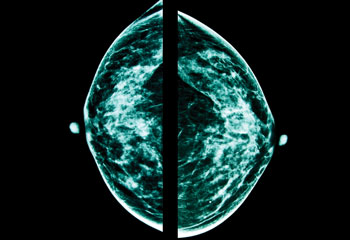‘Facts are stubborn things' and are needed more than ever
ACP advocacy is based on the premise that public policy positions that are well supported by facts and evidence will be more persuasive and have greater acceptance.
We often look to our Founding Fathers for wisdom, especially in turbulent times. This quote from John Adams is particularly apt to today's debates over the Affordable Care Act, climate change, vaccines, and many other issues: “Facts are stubborn things; and whatever may be our wishes, our inclinations, or the dictates of our passions, they cannot alter the state of facts and evidence.”
It has been observed that we now live in a post-facts or “alternative facts” era, when people's inclinations and passions are allowed to substitute for facts and evidence. Yet without some agreement on underlying facts and evidence, informed and reasoned discourse is impossible, and the policy results will surely be the wrong ones.
This is particularly troubling for ACP, because our advocacy is based on the premise that public policy positions that are well supported by facts and evidence will be more persuasive with, and have greater acceptance by, elected officials and the broader public they serve than ones that are lacking in facts and evidence. All of ACP's policy papers, many of which are published in Annals of Internal Medicine and therefore meet its editorial standards, are supported by an extensive review of facts and evidence.
Yet there are many examples of the challenges ACP faces in offering evidence-based policy recommendations in a post-fact world.
Vaccines. It's a fact that vaccines work in preventing devastating illnesses and preventable deaths. It's also a fact that there is no scientific evidence to support a link to autism. Yet the antivaccine movement has millions of adherents and many high-visibility celebrities behind it, and in many states, they have been effective in getting laws on the books to allow parents to opt their children out of required vaccinations, endangering not only those children but others around them. Especially troubling is that the Trump administration has given visibility to antivaccine zealots like Robert F. Kennedy Jr., who was invited to meet with administration officials. A discredited doctor, Andrew Wakefield, who lost his license for publishing fraudulent “research” linking vaccines to autism, was invited to an inaugural ball. President Trump himself has made statements suggesting that vaccines cause autism.
Climate change. It's a fact that the earth is getting warmer; 2016 was the hottest year on record, according to government scientists at NASA and at the National Oceanic and Atmospheric Administration. It's a fact that 97% of published climate research supports the view that humans are causing recent global warming, as noted in a study by Cook and colleagues published in Environmental Research Letters in April 2016. It's a fact that a large and growing body of scientific evidence supports the conclusion that global warming could have a catastrophic effect on human health, evidence that informed ACP's own 2016 position paper on climate change and health, which was published in the May 3, 2016, Annals of Internal Medicine. Yet President Trump and his nominees to head the Environmental Protection Agency and State Department are climate change skeptics. And a significant proportion of the U.S. electorate, largely aligned with their partisan leanings, are climate change skeptics: The Pew Research Center found in April 2016 that only 20% of Republicans consider climate change to be a very serious problem compared to 68% of Democrats.
Access and the Affordable Care Act. Unlike vaccine and climate change, the impact of the Affordable Care Act, and the consequences of repealing it as the new administration and Congress have promised to do, are not as easily subjected to a yes-or-no, what-does-the-science-show checking of facts. While the ACA was enacted into law almost seven years ago, most of its coverage expansions didn't begin until 2014, too recently to evaluate its full impact on access, quality, and cost of care. Yet there are certain things known to be facts.
- Fact: The uninsured rate is the lowest ever, with the gains in coverage associated with implementation of the ACA, according to March 2016 estimates from the National Health Interview Survey. More than 20 million people now get their coverage directly through the ACA, either through expanded Medicaid or through subsidies to buy private insurance that meets federal standards.
- Fact: Prior to the ACA, insurers in the individual insurance market routinely turned down or charged more for people with pre-existing conditions (27% of Americans have a pre-existing condition like asthma or diabetes), a practice that the ACA has made illegal; repealing the ACA would place this group again at risk of being declined for coverage.
- Fact: The ACA has reduced the federal budget deficit, and partial repeal of it through budget reconciliation, as the GOP congressional leadership has signaled it plans to do, would add nearly $500 billion per year over the next decade to the federal budget deficit, according the Congressional Budget Office, unless offset by deep cuts to other programs, like Medicare and Social Security.
While the full impact of ACA repeal can't be determined until the Trump administration and congressional leadership explain what would be repealed and what would replace it, the best available evidence is that repeal would result in loss of coverage and consumer protections for tens of millions of people, as ACP has summarized in a fact sheet on repeal's potential impact.
Allowing lies about vaccines to gain acceptance will cause more children to go unvaccinated; some children and adults will die as a result. Suppressing information on the health impact of climate change won't make it go away; it just makes it less likely that we will act in time to avert a public health disaster. And while there should be an informed debate over the ACA and possible alternatives to it, ignoring who has gained coverage from it, and could lose it if the law is repealed, will only ensure that millions of people are unnecessarily hurt along the way. Facts are stubborn things, and we must insist that they matter more than our wishes, our inclinations, or the dictates of our passions, especially in this sadly post-fact era.





